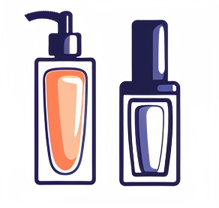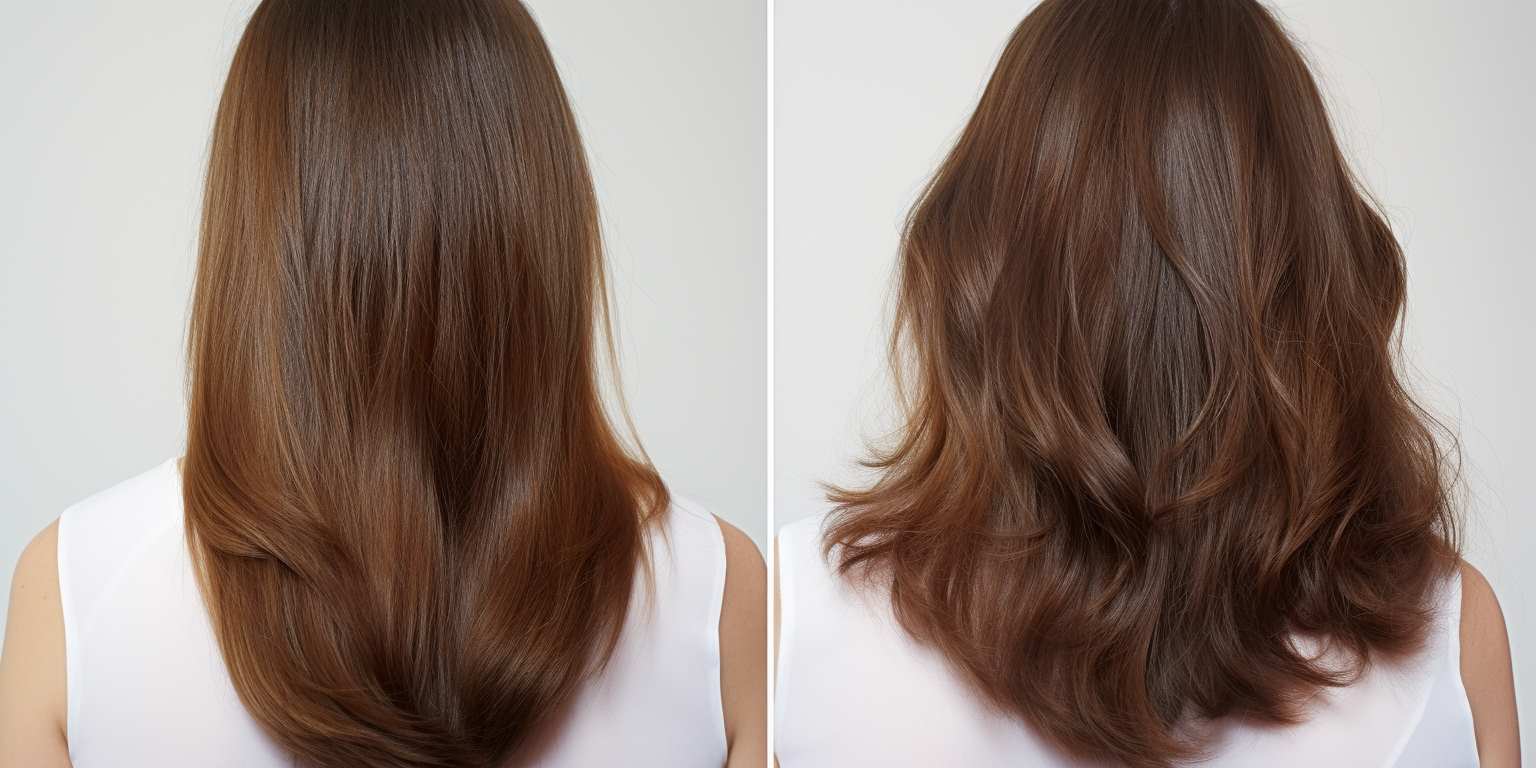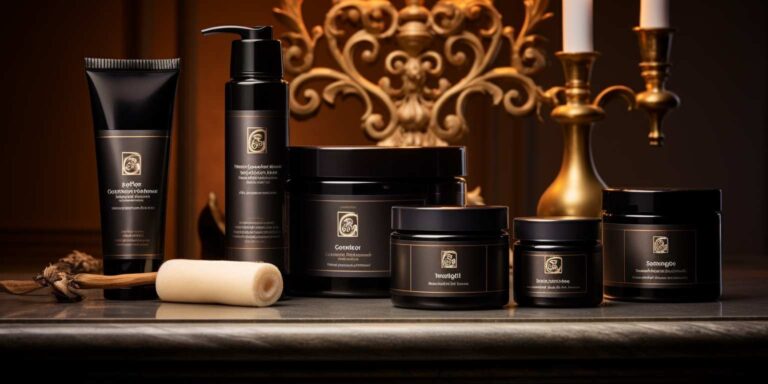The ultimate guide to charcoal detox shampoo
First and foremost, the benefits of using charcoal detox shampoo are noteworthy. Activated charcoal, a key ingredient, acts like a magnet, pulling out impurities, excess oils, and toxins from your scalp and hair. This leads to a thorough cleanse that regular shampoos might struggle to achieve.
But it’s not just about cleansing; it’s about detoxifying. Charcoal detox shampoo goes beyond the surface, targeting environmental pollutants and product build-up. This makes it a game-changer, especially for those living in urban areas with higher pollution levels.
Wondering if it’s suitable for your hair type? The good news is that charcoal detox shampoo is versatile. Whether you have oily, dry, or normal hair, incorporating this shampoo can balance your scalp’s oil production. It doesn’t strip away essential oils, leaving your hair both clean and nourished.
Now, let’s talk about the science behind charcoal detox shampoo. Activated charcoal has a porous structure, increasing its surface area. This unique property allows it to absorb and trap toxins effectively. It’s like a mini-spa day for your hair and scalp.
One might wonder about the texture of this shampoo. Fear not; it’s not a gritty mess. The activated charcoal is finely milled and is combined with other cleansing agents, resulting in a smooth and luxurious formula that’s easy to apply.
Considering the rising trend of clean beauty, charcoal detox shampoo aligns with the demand for natural ingredients. It’s often free from sulfates, parabens, and other harmful chemicals, making it a conscious choice for those who prioritize the health of their hair and the environment.
But how often should you use charcoal detox shampoo? Experts recommend incorporating it into your routine once a week for optimal results. This frequency strikes a balance between deep cleansing and preventing over-drying.
Thinking of making the switch? Look for shampoos that not only contain activated charcoal but also boast additional hair-loving ingredients like tea tree oil, peppermint, or aloe vera. These additions can enhance the overall benefits, leaving your hair feeling refreshed and revitalized.
Deep cleansing hair wash explained
Understanding the importance of deep cleansing hair wash can transform your hair care routine into a rejuvenating experience. This specialized technique goes beyond regular shampooing, offering a thorough cleanse that removes impurities, product buildup, and excess oil from your scalp and hair.
At its core, deep cleansing hair wash involves the use of potent clarifying shampoos or treatments designed to penetrate deeply into the hair follicles and effectively lift away stubborn residues. These formulations are typically sulfate-based and contain detoxifying agents such as activated charcoal, tea tree oil, or clay to purify the scalp and strands.
One of the primary benefits of deep cleansing hair wash is its ability to restore balance to the scalp environment. By eliminating excess sebum and product buildup, it helps prevent issues like dandruff, itchiness, and scalp acne, promoting a healthier scalp ecosystem.
Moreover, deep cleansing is particularly beneficial for individuals who frequently use styling products, such as hairspray, gel, or pomade. These products can leave behind residue that regular shampooing may not effectively remove, leading to dullness, weighed-down hair, and potential scalp issues.
When incorporating deep cleansing into your hair care routine, it’s essential to strike a balance. While these clarifying treatments are excellent for occasional use, using them too frequently can strip the hair of its natural oils and cause dryness or damage.
To get the most out of your deep cleansing hair wash, follow these tips:
| Choose the right product: | Look for clarifying shampoos specifically formulated for deep cleansing. Check the ingredients list for sulfates and detoxifying agents. |
| Adjust frequency: | Use deep cleansing treatments once every 1-2 weeks or as needed, depending on your hair type and lifestyle. |
| Follow up with conditioner: | After deep cleansing, replenish moisture with a hydrating conditioner or mask to prevent dryness. |
| Avoid overuse: | Resist the temptation to use deep cleansing products too frequently, as this can lead to over-drying of the hair and scalp. |
How toxin removing shampoo works
Ever wondered how toxin-removing shampoo works its magic on your hair and scalp? It’s not just about cleansing and smelling good; these specialized shampoos go beyond the surface to eliminate impurities and toxins that may have accumulated over time. Let’s dive into the science behind the cleansing process and understand how these shampoos make a difference.
Firstly, it’s essential to recognize that our hair is exposed to various environmental pollutants, styling products, and even hard water on a daily basis. Over time, these substances can build up, leaving your hair looking dull and lifeless. Enter toxin-removing shampoo, designed with ingredients specifically chosen for their detoxifying properties.
Activated charcoal is a star component in many toxin-removing shampoos. Known for its exceptional ability to absorb impurities, activated charcoal acts like a magnet, pulling out toxins, excess oils, and product residues from your hair and scalp. This powerhouse ingredient is often accompanied by other cleansing agents such as clays and fruit acids, working in synergy to deeply cleanse without stripping away essential oils.
The formulation of these shampoos is meticulously crafted to create an environment hostile to toxins. Antioxidants play a crucial role in this process. Ingredients like vitamin E and green tea extract not only protect your hair from free radical damage but also contribute to the overall detoxification process. They neutralize harmful substances and promote a healthier scalp.
Now, let’s talk about scalp stimulation. Many toxin-removing shampoos incorporate ingredients like menthol or peppermint oil to stimulate blood flow to the scalp. This increased circulation not only helps in nutrient delivery but also aids in the elimination of toxins through the natural detoxification processes of the body.
But how do you know if your toxin-removing shampoo is actually doing its job? Look for specific indicators during and after washing. A tingling sensation on the scalp is often a sign of the shampoo getting to work, while a refreshed feeling post-wash indicates the removal of unwanted substances.
It’s important to note that while these shampoos are effective in toxin removal, they should be used in moderation. Overuse may lead to excessive dryness, as they can also strip away the natural oils that keep your hair healthy. Consider incorporating a moisturizing conditioner into your routine to maintain the balance.
The benefits of activated charcoal in hair care
Activated charcoal has gained popularity in the realm of hair care for its remarkable benefits. Derived from natural sources such as coconut shells, wood, or coal, activated charcoal undergoes a special activation process that gives it a porous structure with a large surface area, making it highly effective in adsorbing impurities and toxins.
When it comes to hair care, activated charcoal works wonders in cleansing and detoxifying the scalp and hair follicles. Its porous surface attracts and traps dirt, oil, and other impurities, effectively removing them from the scalp and hair strands. This deep cleansing action helps to unclog pores and eliminate build-up, leaving the scalp feeling refreshed and rejuvenated.
One of the key benefits of using activated charcoal in hair care is its ability to control excess oil production. By absorbing excess sebum from the scalp, charcoal-based hair products help to balance oil levels, preventing the scalp from becoming greasy and reducing the frequency of washing. This can be particularly beneficial for individuals with oily scalps or those prone to greasy hair.
| Benefits of Activated Charcoal in Hair Care | Description |
|---|---|
| Deep Cleansing | Adsorbs impurities and toxins from the scalp and hair follicles, unclogging pores and removing build-up. |
| Oil Control | Helps to balance oil production, reducing scalp greasiness and extending the time between washes. |
| Scalp Health | Calms and soothes the scalp, promoting a healthy environment for hair growth. |
| Volume and Texture | Can impart volume and texture to the hair, giving it a fuller and more voluminous appearance. |
Furthermore, activated charcoal can contribute to scalp health by calming and soothing irritation and inflammation. Its gentle yet effective nature makes it suitable for individuals with sensitive scalps or those prone to scalp conditions such as dandruff or dermatitis.
Besides its cleansing and purifying properties, activated charcoal can also enhance the volume and texture of the hair. When incorporated into hair products such as shampoos or masks, it can help to add body and thickness to the hair strands, giving them a fuller and more voluminous appearance.
Why your hair needs a detox
Our hair is exposed to a multitude of pollutants and products on a daily basis, leading to a buildup of residue that conventional shampoos can’t always tackle. This is where a hair detox becomes essential for maintaining healthy locks.
Imagine your hair as a canvas constantly painted with styling products, environmental pollutants, and hard water minerals. Over time, this buildup can weigh down your strands, making them appear dull and lifeless. A hair detox is like hitting the refresh button, allowing your hair to breathe and regain its natural shine.
Product Residue: Regular use of styling products, serums, and even some shampoos can leave behind a sticky residue that accumulates on the hair shaft. This residue not only dulls the hair but can also contribute to issues like dandruff and scalp irritation. A detox helps to break down and remove this stubborn buildup.
Hard Water Minerals: If you live in an area with hard water, your hair may be suffering the consequences. Minerals like calcium and magnesium from hard water can form deposits on your hair, making it feel coarse and less manageable. A hair detox can help dissolve these minerals, restoring your hair’s natural texture.
Environmental Pollution: Pollution is not just a threat to your skin; it can wreak havoc on your hair too. Smoke, dust, and pollutants in the air can settle on your hair, creating a layer that regular shampoos might struggle to eliminate. A detox treatment can deeply cleanse, leaving your hair fresh and rejuvenated.
Excessive Oil: Overactive oil glands can lead to greasy and oily hair, making it challenging to maintain a clean look. A hair detox can regulate oil production, providing a clean slate for your hair care routine.
Think of a hair detox as a spa day for your tresses. It’s a chance to rid your hair of the accumulated stress and impurities, allowing it to regain its natural vitality. Incorporating a detox into your hair care routine can result in shinier, more manageable locks that truly reflect your hair’s health.
Choosing the right charcoal shampoo for your hair type
When it comes to selecting the right charcoal shampoo for your hair, understanding your hair type is crucial. Charcoal shampoos have gained popularity for their ability to deep clean and detoxify the hair and scalp. However, not all charcoal shampoos are created equal, and choosing the one that suits your hair type can make a significant difference in achieving the desired results.
Charcoal shampoos are known for their ability to absorb impurities and excess oil from the scalp. They are particularly beneficial for individuals with oily hair or those prone to dandruff. If you fall into this category, look for a charcoal shampoo that explicitly targets oily scalp and provides a balancing effect.
On the other hand, if you have dry or damaged hair, it’s essential to choose a charcoal shampoo that not only cleanses but also moisturizes. Look for formulations that contain hydrating ingredients such as argan oil or coconut oil. These additives can help prevent your hair from becoming overly dry after using the charcoal shampoo.
For those with color-treated hair, finding a charcoal shampoo that is gentle and won’t strip away your hair color is crucial. Look for products that are sulfate-free and specifically formulated for color-treated hair. This ensures that your hair color remains vibrant and doesn’t fade prematurely.
If you are uncertain about which charcoal shampoo to choose, consider your scalp’s condition. For individuals with a sensitive scalp or conditions such as eczema or psoriasis, opting for a charcoal shampoo with soothing ingredients like aloe vera or tea tree oil can be beneficial.
Reading the product label is crucial in making an informed decision. Look for keywords such as “clarifying,” “moisturizing,” or “color-safe” to guide you in selecting the appropriate charcoal shampoo for your hair type. Additionally, be wary of ingredients that may cause irritation or allergic reactions, especially if you have known sensitivities.
It’s important to note that charcoal shampoos are not meant for daily use. Using them too frequently can lead to over-drying, regardless of your hair type. Aim to use a charcoal shampoo once or twice a week, or as recommended on the product label.
How to integrate charcoal shampoo into your hair care routine
If you’re looking to revamp your hair care routine and add a touch of innovation, charcoal shampoo might be the game-changer you’ve been searching for. This unique product has gained popularity for its ability to cleanse, detoxify, and rejuvenate hair. Here’s how you can seamlessly integrate charcoal shampoo into your daily hair care regimen.
1. Understand the Benefits: Before diving in, it’s crucial to grasp the benefits of using charcoal shampoo. Activated charcoal effectively removes impurities, excess oil, and product buildup from the scalp and hair. Its detoxifying properties make it ideal for those looking to achieve a cleaner and healthier mane.
2. Choose the Right Product: Not all charcoal shampoos are created equal. Look for a product that suits your hair type and concerns. Whether you have oily, dry, or normal hair, there’s a charcoal-infused shampoo tailored to address your specific needs. Read product labels and customer reviews to make an informed decision.
3. Frequency Matters: While charcoal shampoo can work wonders, it’s essential not to overuse it. Depending on your hair type, aim to incorporate it into your routine once or twice a week. Overusing charcoal shampoo may strip your hair of its natural oils, leading to dryness.
4. Pre-wash Routine: To maximize the benefits, consider incorporating a pre-wash routine. Use a mild, moisturizing shampoo before applying the charcoal variant. This helps to prep your hair, making it more receptive to the detoxifying properties of the charcoal shampoo.
5. Application Technique: Proper application is key to reaping the rewards of charcoal shampoo. Wet your hair thoroughly and apply a small amount of the product. Gently massage it into your scalp, allowing the charcoal to lift impurities. Rinse thoroughly to ensure no residue is left behind.
6. Follow with Conditioner: While charcoal shampoo cleanses your hair, it’s essential to follow up with a conditioner. This helps restore moisture and keeps your locks looking lustrous. Choose a conditioner that complements the charcoal shampoo for a balanced hair care routine.
7. Monitor the Results: Pay attention to how your hair responds to the introduction of charcoal shampoo. If you notice improvements in volume, shine, and overall health, you’re on the right track. However, if you experience excessive dryness, consider adjusting the frequency or opting for a milder charcoal formula.
8. Consider a Charcoal Hair Mask: For an occasional deep treatment, consider using a charcoal hair mask. This intensive treatment can be applied once a month to provide an extra boost of detoxification and nourishment for your hair.







